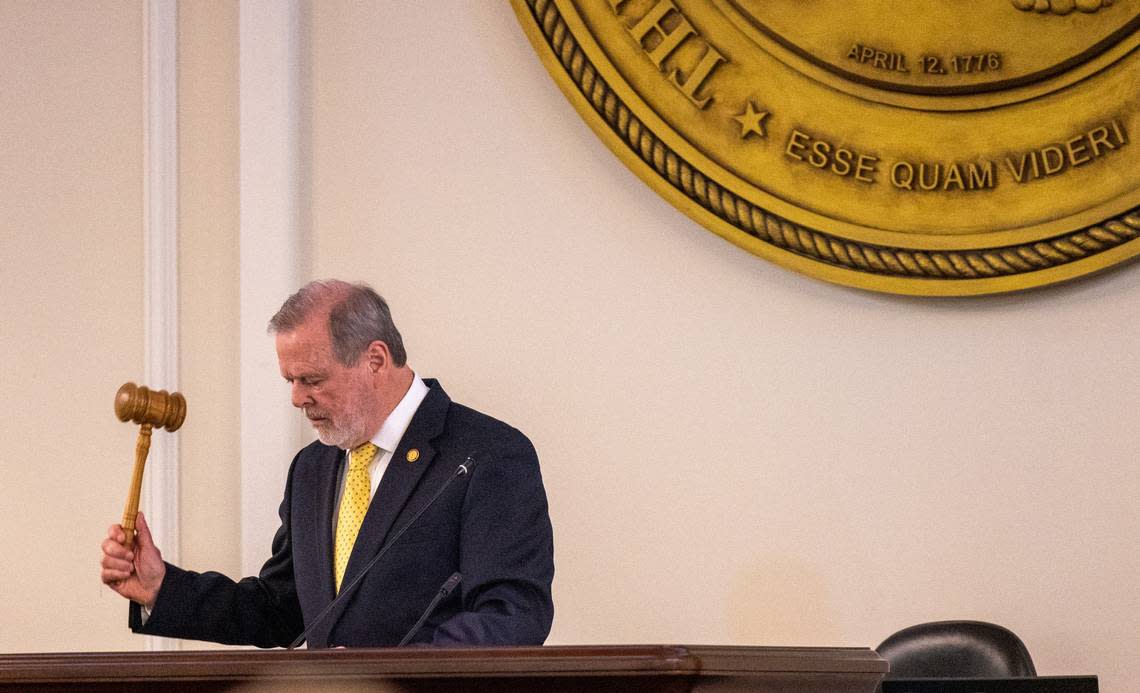The difference between North Carolina and Minnesota? NC lawmakers are mean. | Opinion

Welcome to NC Voices, where leaders, readers and experts from across North Carolina can speak on issues affecting our communities. Send submissions of 350 words or fewer to opinion@charlotteobserver.com.
NC can learn from MN lawmakers
As a resident of Minneapolis and a future part-year resident of Cary, I applaud Ned Barnett’s May 26 column highlighting recent accomplishments of the Minnesota legislature. (“Minnesota’s progressive session could be NC’s story.”)
He wrote of Minnesota leaders working symbiotically with Gov. Tim Walz to enact important and significant laws and programs that are expected to make big positive differences in the lives of average Minnesotans, regardless of political preference.
There are real political differences between the major parties in Minnesota, but unlike in North Carolina we don’t have the rampant mean-spiritedness exhibited by some N.C. Republican legislators, elected officials and members of the state Supreme Court. Minnesota Democratic officials and office holders and their Republican counterparts behave respectfully toward one another despite sincere disagreements over political philosophies and proposals.
Another important factor is that Minnesotans consistently demonstrate one of the nation’s highest rates of voter engagement. There aren’t nearly as many non-voters.
While it likely won’t happen in just one or two election cycles, North Carolina could reasonably achieve the type of good-functioning state government demonstrated in Minnesota if even a small majority of Democratic-leaning N.C. voters voted to elect Democrats and like-minded Independents to offices at all levels.
There also must be active contests for all elected offices — city, county, state and federal. Currently, way too many N.C. offices go unopposed with no real choices available to voters.
I am hopeful that the new energetic chairman of the N.C. Democratic Party, Anderson Clayton, and her lieutenants across the state can successfully invigorate the party to get more Democratic candidates on the ballot and get Democratic-leaning voters duly engaged.
North Carolina used to be justifiably proud of being a beacon of better sense among the states of the old Confederacy. In the last dozen or so years, it has regrettably demonstrated an aspiration to be more like the most regressive states. It’s no badge of honor to emulate states like Alabama, Mississippi and Arkansas. That trend needs to end.
James Utt, Minneapolis
NC needs better bail bond reform
The writer is the Charlotte-Mecklenburg NAACP president.
When a person is accused of a serious violent offense, what is the appropriate bond amount to keep the community safe from further harm? A current N.C. legislative proposal seeks to give judges more power to answer that question. But it’s the wrong question.
No money can guarantee that a potentially dangerous person will remain behind bars while their case progresses or that they’ll return to court and remain arrest-free if they bond out.
Our courts must navigate an arbitrary (and ineffective) system that gambles on whether high bonds will keep dangerous people in custody while also trying — and too often failing — to ensure that low-risk people are not detained simply because they can’t pay a financial bond.
We need a rational, informed process for pretrial release and detention decisions that reduces the reliance on money and balances constitutional rights with the legitimate duty to enhance safety. The current proposal, House Bill 813, falls short.
National and local data show that most people are successful while living in the community before charges are resolved. They attend court hearings and remain law-abiding. For the smaller number of people who pose a danger, we need a process where judges consider the nature of the charge, the evidence, a person’s criminal history, the arresting officer’s input, a pretrial background report, and prosecutor and defense counsel arguments.
Then, after considering whether any release conditions could mitigate the danger of harming others, judges decide whether detention is appropriate and justified without relying on a financial bond. This approach ensures that potentially dangerous people stay in jail, something money cannot do.
When people remain in jail simply because they can’t pay, it is unfair and un-American. It is a direct assault on their right to liberty and to be treated equally by the law.
Corine Mack, Charlotte

